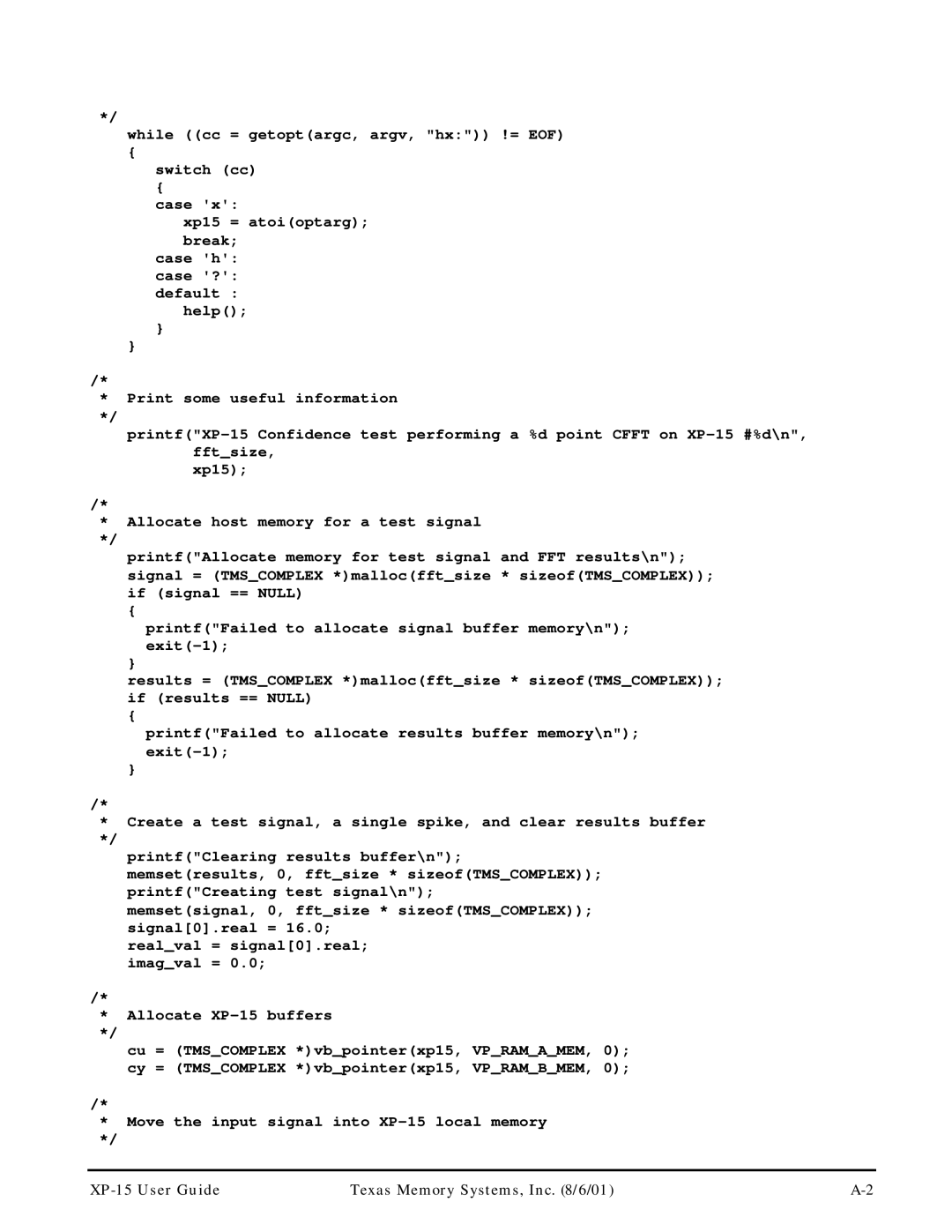*/
while ((cc = getopt(argc, argv, "hx:")) != EOF)
{
switch (cc)
{
case 'x':
xp15 = atoi(optarg); break;
case 'h': case '?': default :
help();
}
}
/*
*Print some useful information
*/
xp15);
/*
*Allocate host memory for a test signal
*/
printf("Allocate memory for test signal and FFT results\n"); signal = (TMS_COMPLEX *)malloc(fft_size * sizeof(TMS_COMPLEX)); if (signal == NULL)
{
printf("Failed to allocate signal buffer memory\n");
}
results = (TMS_COMPLEX *)malloc(fft_size * sizeof(TMS_COMPLEX)); if (results == NULL)
{
printf("Failed to allocate results buffer memory\n");
}
/*
*Create a test signal, a single spike, and clear results buffer
*/
printf("Clearing results buffer\n"); memset(results, 0, fft_size * sizeof(TMS_COMPLEX)); printf("Creating test signal\n"); memset(signal, 0, fft_size * sizeof(TMS_COMPLEX)); signal[0].real = 16.0;
real_val = signal[0].real; imag_val = 0.0;
/*
*Allocate
*/
cu = (TMS_COMPLEX *)vb_pointer(xp15, VP_RAM_A_MEM, 0); cy = (TMS_COMPLEX *)vb_pointer(xp15, VP_RAM_B_MEM, 0);
/*
*Move the input signal into
*/
| Texas Memory Systems, Inc. (8/6/01) |
